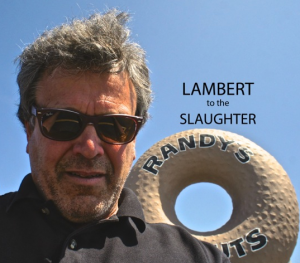 There’s at least one powerful irony in NBC slamming Brian Williams with a six-month, unpaid suspension and Jon Stewart announcing his retirement from “The Daily Show” on the same day. And it’s within this question: Which of the two has proven to be the more credible messenger of news? After that you can kick around, “Which is more the caricature of a modern TV news anchor?”
There’s at least one powerful irony in NBC slamming Brian Williams with a six-month, unpaid suspension and Jon Stewart announcing his retirement from “The Daily Show” on the same day. And it’s within this question: Which of the two has proven to be the more credible messenger of news? After that you can kick around, “Which is more the caricature of a modern TV news anchor?”
There’s almost nothing more than anyone can say about Williams’ death spiral other than it was whiplash fast and unambiguous. One day he was a celebrity god. The next he’s persona non grata among the chattering classes. But in the brief time it took him to dive from the stratosphere to the asphalt, precious few bloviators and pundits dared place his personal apocalypse in the context it thoroughly and fairly requires.
Quite ironically, Stewart himself got there Monday night. Elsewhere, veteran reporter/writer John Hockenberry, squeezed it in at the end of his column on Williams’ meltdown. I was a bit disappointed that my old pal, David Carr, while eloquent, couldn’t find space to make the same salient point. (Off the radar, another old pal, Jim Leinfelder was on to this question — via e-mail –within hours of Williams’ meltdown.)
“The point” is of course this: If a guy who is basically a network entertainer — someone whose combination of good-looks, charm and polished demeanor reliably attracts an audience large enough to satisfy advertisers — is to suffer the 21st century of a public drawing-and-quartering for over-inflating his war experiences, specifically those in our Iraq invasion, how is it that both the architects of that invasion and Williams’ peers feel no heat? No widespread vilification? Much less legal recourse? Fundamentally no censure or punishment at all for leading us into a multi-trillion-dollar, reputation-blotting blunder and, in the context of the media, playing complicit lapdogs to the whole shameful affair?
Are Williams’ cocktail party-style exaggerations truly worse than the timidity of the vast majority of the national press? Worse than the professional skeptics who stood by, too intimidated by national hysteria to ask impertinent questions, as Dick Cheney and George W*. sold a war of choice based on stovepiped intelligence and fear? It certainly seems so, because Williams’ career is a cinder, while the rest, including the revered Tom Brokaw, are still welcome guests at think-y festivals, graduation ceremonies and Big League journalism award ceremony stroke-a-thons.
Watching Stewart walk us through this Monday night, the most sickening part for me, wasn’t Williams, it was the montage of people like former New York Times editor Bill Keller and his laurel-covered ilk uttering flagrantly false assurances of having done due diligence on the war at its outset. That is the sort of thing, a transparent falsehood, that ought to ruin a career, not something as minor on the grand scale of things as bragging about getting “shot out of the sky.”
Back to the question of credibility. If we truly mean “being trusted and believed in”, is Jon Stewart further down the ladder of trustworthiness than any of the correspondents who, dare I say, “questioned” George W* about the looming invasion on March 6, 2003? (Here’s video.) The record pretty clearly shows that only ABC’s Terry Moran came close to applying any heat to the veracity of the claims Cheney and Bush had been making. Everyone else was caught up in the fog of research-tested patriotism. You have to wonder how someone who hadn’t completely bought in to the group-think of corporate journalism might have approached Bush at that critical moment?
Stewart’s “fake anchor” shtick has made TV history by making “real journalists” squirm over their pettiness, ineptitude, bluster and lack of respect for the truth, all of which is course is baked into the notion of a commercially palatable news product.
So as both Williams and Stewart depart the stage, it is fair to ask, “Which of the two is more credible?” “Which is most respectful of the truth?”
